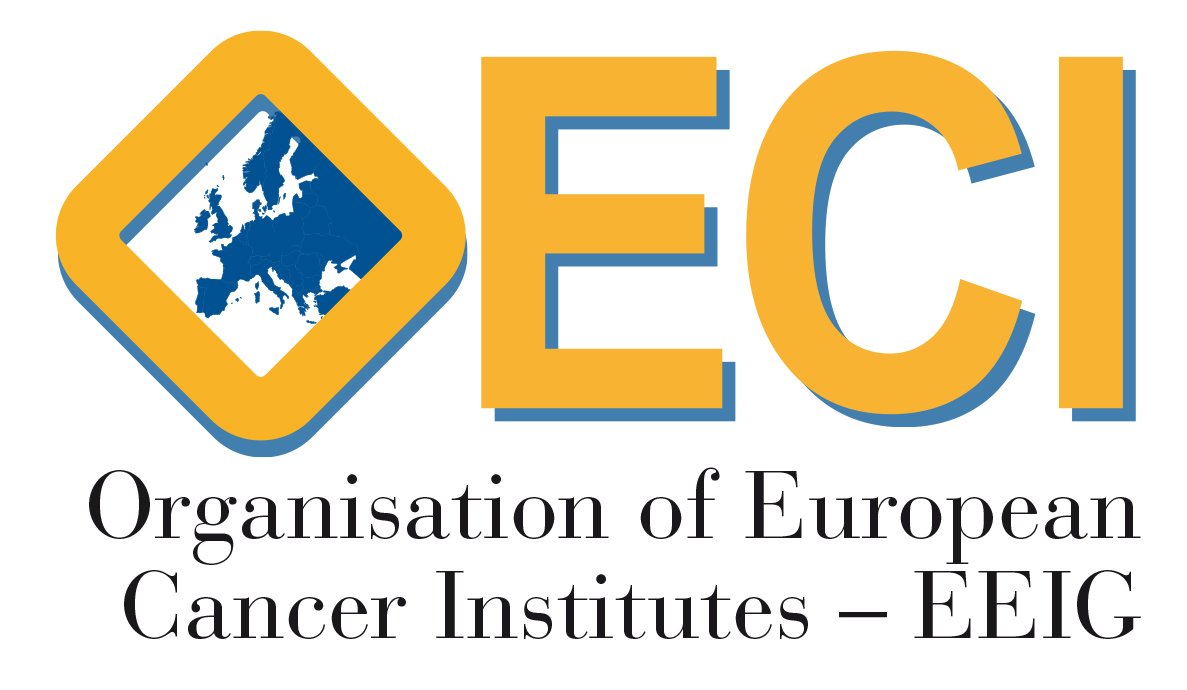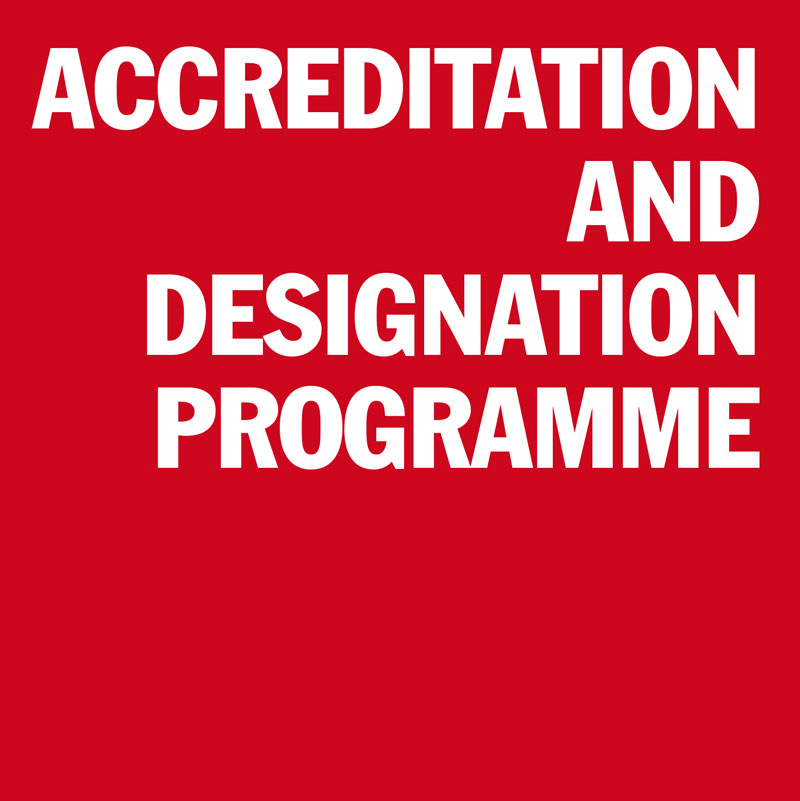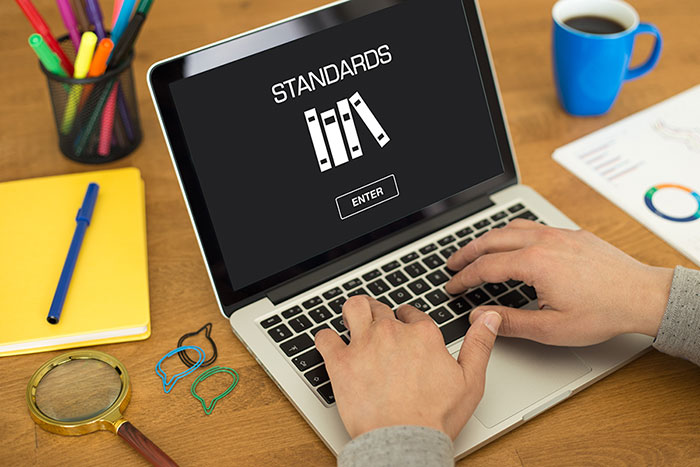The A&D Programme
Our Mission
Our mission is to provide cancer patients equal access to a high quality of cancer care in multidisciplinary teams; to ensure that cancer research and innovation are fully integrated into patient care pathways; and to put patients at the centre of their care.
To achieve these aims within cancer centres, the A&D Programme is designed to enable a complete quality system for cancer diagnosis, care, education and research by using OECI standards and indicators and peer review.
The A&D Programme is the only cancer accreditation programme globally which evaluates comprehensive cancer care and translational research in a seamless process. Many quality assessment programmes are part of regulatory measures imposed by an external authority.
In contrast, the OECI A&D programme is a supportive voluntary measure for cancer centres.
The A&D Programme been developed over more than 15 years by a wide range of experts from European cancer centres, professional societies and patient organisations, building upon the most impactful quality standards worldwide. Peer review is performed by experts in cancer care and research from OECI cancer centres, and site visits are chaired by a director of an OECI cancer centre.
To improve
quality in cancer care, education and research
To enable
knowledge exchange, cooperation and coherence among European cancer centres
To promote
comprehensive care and optimal Quality of Life for patients
Designation Types
OECI distinguishes three types of designation. They all require a high degree of multidisciplinarity and high-quality cancer care.
The three types are:
- OECI Cancer Centre (CC)
- OECI Comprehensive Cancer Centre (CCC)
- OECI Comprehensive Cancer Network (CCN)
All OECI accredited cancer centres are required to have:
- An identifiable organisational entity with a clear governance
- A direct provision of an extensive variety range of high-quality cancer diagnostics and care tailored to the individual patient’s needs
- A culture of learning and improving the professional and organisational quality of care
In addition, OECI Comprehensive Cancer Centres are required to demonstrate:
- High level of infrastructure, expertise and innovation in cancer research, especially in translational and clinical research, but also in many cases including basic science
- Either strong University and Research Institute links, or a University partnership as part of the Comprehensive Cancer Centre
- Extensive international networking
The key word in the A&D Programme is: comprehensiveness; of both professional infrastructure and performance. It is based upon the philosphy: “If all relevant competences, skills, resources and tools concerning cancer care and research are brought together and integrated, it will lead to an outcome that is larger, on the whole, than the sum of its parts”. Comprehensiveness, in that sense, can be seen as a basic principle on how cancer activities should be organised.
The designation criteria
The designation criteria relating to research capacity and capabilities are used to decide the designation of the cancer centre. Before the start of the self assessment the preliminary designation is assessed based upon quantitative criteria. The audit team will look at comprehensiveness based on quality criteria (as mentioned above) and the consistency of all parts during the peer review visit.
Our PROGRAMME BY THE NUMBERS
Comprehensive Cancer Centres
Cancer Centres
Comprehensive Cancer Networks
Centres in accreditation
Centres and Networks in our programme
How to apply
Who can join?
Applying to the A&D Programme is a voluntary decision of a cancer centre. However, there are a number of requirements that each cancer centre should meet:
Are you applying to the A&D Programme for the first time?
- OECI membership is required
- Strong commitment to quality improvement (signature of Director/ Board of Directors)
- Dedicated staff (contact person, project group, all involved employees)
- Cancer care is performed in an identifiable unit with a governance and organisational structure
- Provision of oncology surgery, radiation therapy and medical oncology
- Involvement in cancer research and education programmes as well as cancer care
- Stable management structure
- No major changes expected (e.g. governance changes, merger, complete re-location)
Are you applying for re-accreditation?
- If you apply for re-accreditation, you do not need to fill out the Application form
- You will be notified by the OECI A&D Management Unit how and when you need to apply for re-accreditation
- The re-accreditation process will start after submitting the Designation form in the e-tool
Benefits
Advantages of an OECI Accreditation
It is the only Europe-wide institutional accreditation which covers both cancer care and research in one process
The review produces a high-quality Improvement Plan (with clear identification of opportunities and a plan to fix them)
There is a real engagement by all disciplines and all levels of staff
The gathering of the data and the self-assessment by all departments is a benefit in itself (for self-monitoring and learning)
The accredited centres can participate in benchmarking
How does the A&D Programme add value for patients?
There are large sections of the questionnaires around patient satisfaction and involvement in the centre
The peer review is part of a toolbox to improve outcomes for patients
It disseminates research and implementation of best practice
The process promotes collaboration and the development of networks
Join the A&D Programme
Become an OECI Member
Apply to join the A&D Programme
Send us an email if you need assistance
OECI Accreditation & Designation Manual Version 4.0
We are pleased to present Version 4.0 of the OECI Accreditation & Designation Manual — the most comprehensive update to date of our quality standards and quantitative data measures for cancer centres and networks.
Reflecting a Europe-wide consensus and building on years of experience, the revised Manual introduces a number of important updates, including:
- Core and Core Essential Standards
- New standards on AI, theranostics, molecular diagnostics, prevention, survivorship, pathology, and palliative care
- Dedicated standards for Comprehensive Cancer Networks
- Clarified designation criteria for OECI Cancer Centres and Comprehensive Cancer Centres
The new Manual applies to all centres and networks entering the A&D Programme after 1 July 2025.
Accessing the Manual
To ensure appropriate use and safeguard intellectual property the Accreditation & Designation Manual V. 4.0 is divided into two parts:
Open Access
A publicly available section of the Manual can be accessed freely. To support responsible use, we kindly ask users to complete a short download form.
Full Version – Restricted Access
Complete access to the entire Manual is restricted to centres who have applied to the A&D Programme and to other centres/persons by discretion. To request access, potential users are invited to submit a form, which will be reviewed by the OECI Accreditation & Designation Management Unit on a case-by-case basis.
Legal Notice and Citation Guidelines
All rights reserved. This Manual and its contents are protected under the Belgian Code of Economic Law (Book XI – Intellectual Property, Articles XI.164 et seq.) and applicable European Union and international copyright legislation, including the Berne Convention. The contents constitute the intellectual property of the Organisation of European Cancer Institutes – European Economic Interest Grouping (OECI-EEIG).
This Manual is intended solely for purposes directly related to the OECI Accreditation and Designation Programme. Any form of reproduction, distribution, communication, storage or use, in whole or in part, without the prior written authorisation of OECI, is strictly prohibited. Any authorised reference or use must include full and proper acknowledgement of OECI authorship.
How to cite this Manual
When using standards or other data from the Organisation of European Cancer Institutes (OECI), please cite OECI by including the following text:
[Name of the data category used] were downloaded from the OECI portal, Standards Version 4.0 (2025), on [date].
In References:
Organisation of European Cancer Institutes (OECI). Accreditation and Designation Programme – User Manual Version 4.0 (2025). ISBN N 9789082576634. https://accreditation.oeci.eu/
In Acknowledgements:
The author(s) would like to thank the Organisation of European Cancer Institutes (OECI) for providing the [data].
OECI Standards
Standards describe the requirements the quality system has to meet
Having gone through two major revisions, we believe that the OECI standards are now the most comprehensive and unique when compared to existing standards on cancer care and research. They are translated in two questionnaires, a qualitative and a quantitative, to assess the current quality in a cancer centre. Both are integrated into an electronic tool (e-tool) for self-assessment.
100 CORE standards
The CORE standards are important prerequisites for high quality cancer care and research. They always need to be provided with evidence and a clarification in the notes in the e-tool during self assessment. Non-compliance – assessed during the peer review – may be reasons for a delay in certification. These standards were published in Lancet Oncology.
Certification by the International Society for Quality in Health Care External Evaluation Association (IEEA)
In 2022, the OECI Standards Manual 3.2 were awarded with the IEEA certification, which was the result of a robust self-assessment and evaluation process, based upon the IEEA’s Guidelines and Principles for the Development of Health and Social Care Standards, 5th edition.





